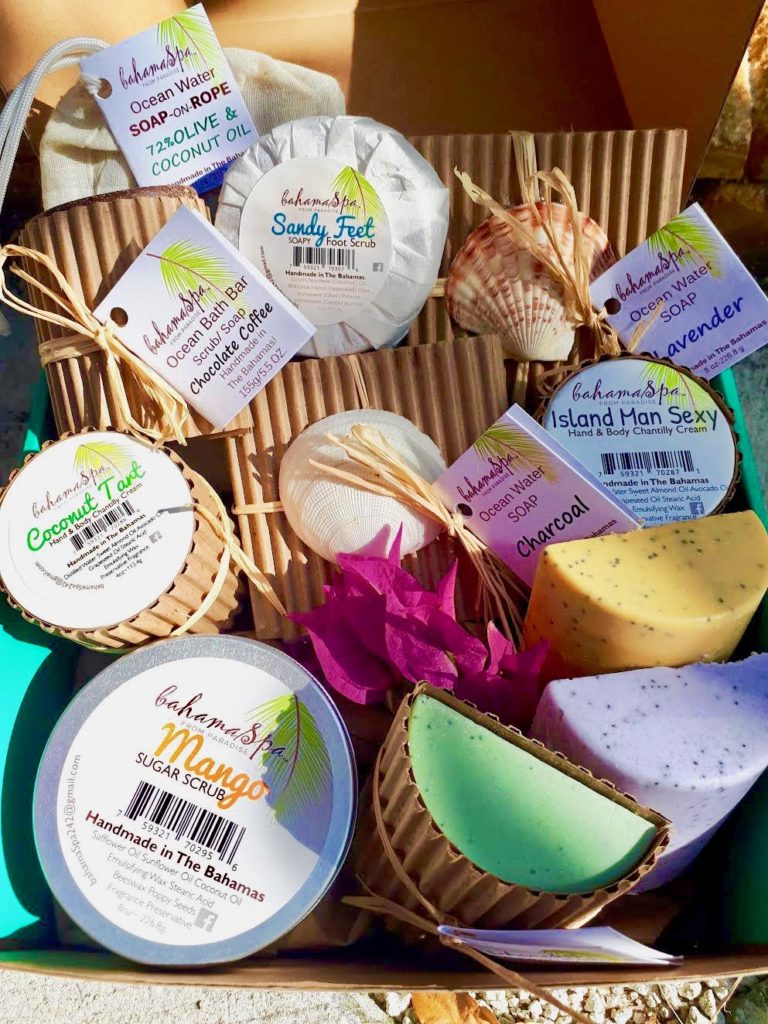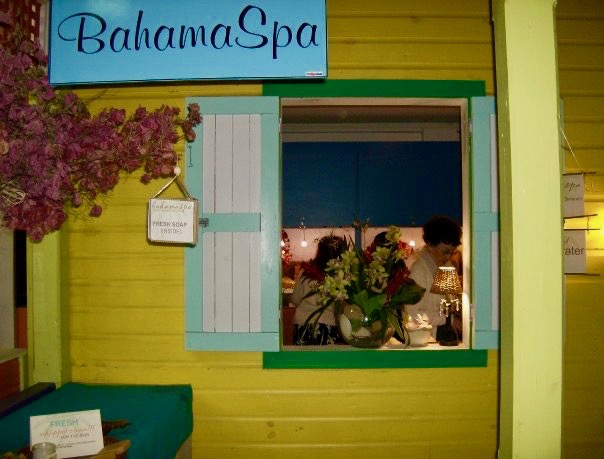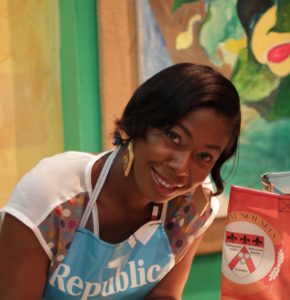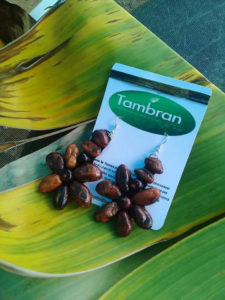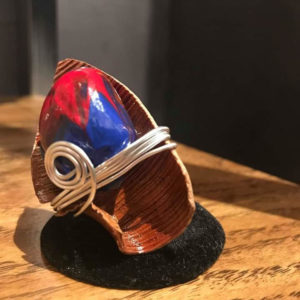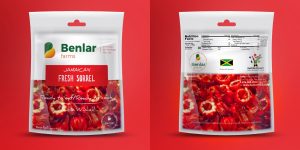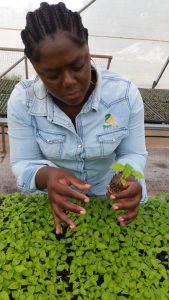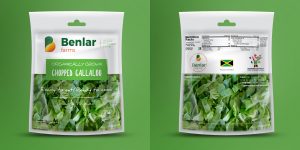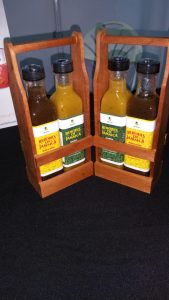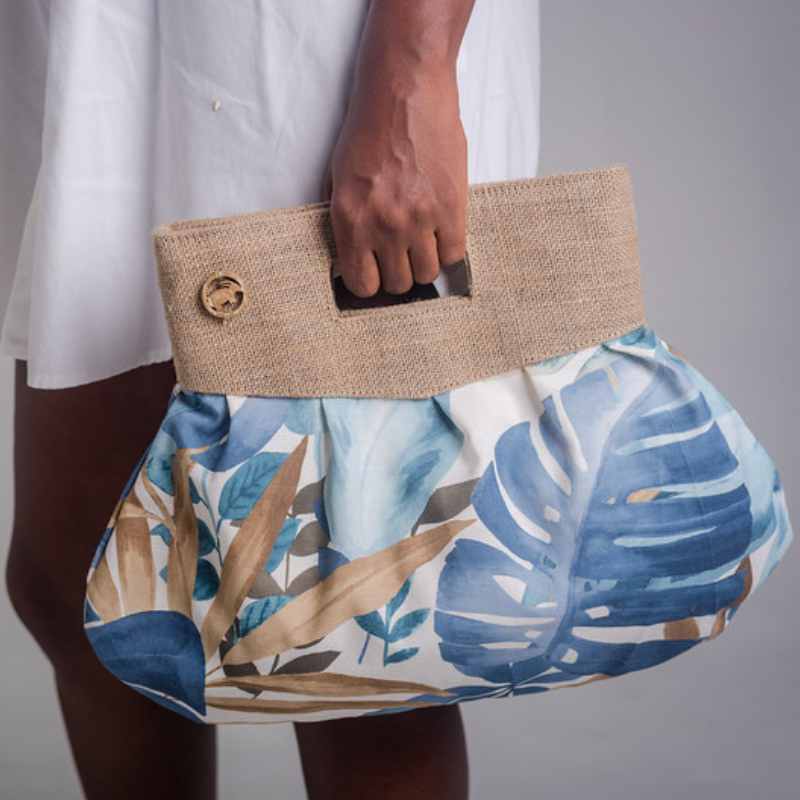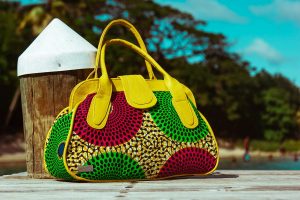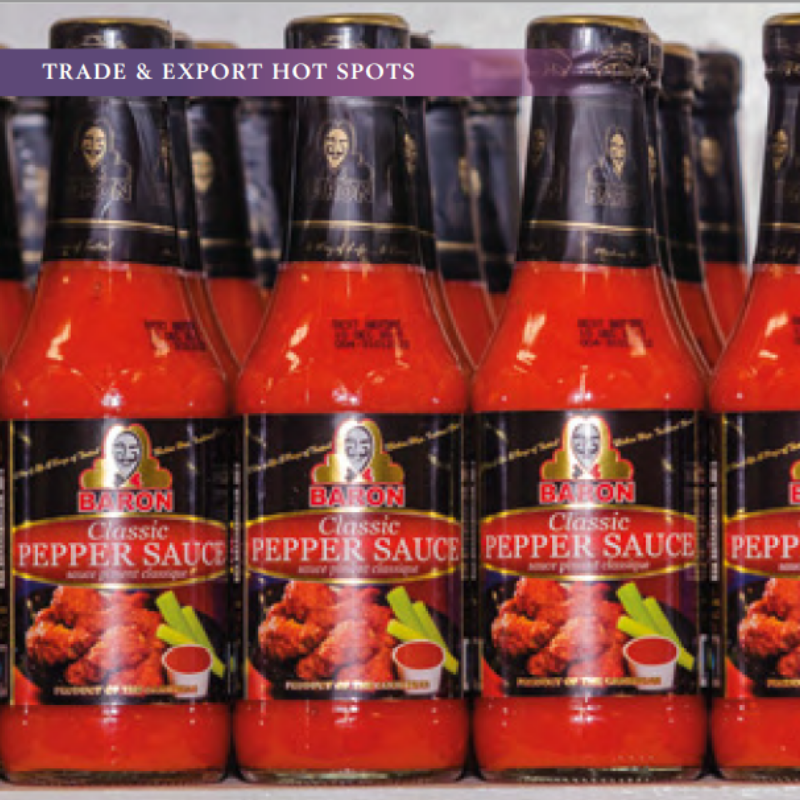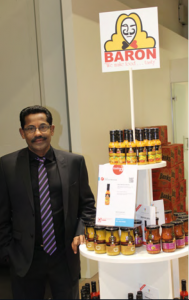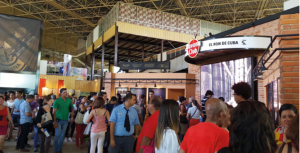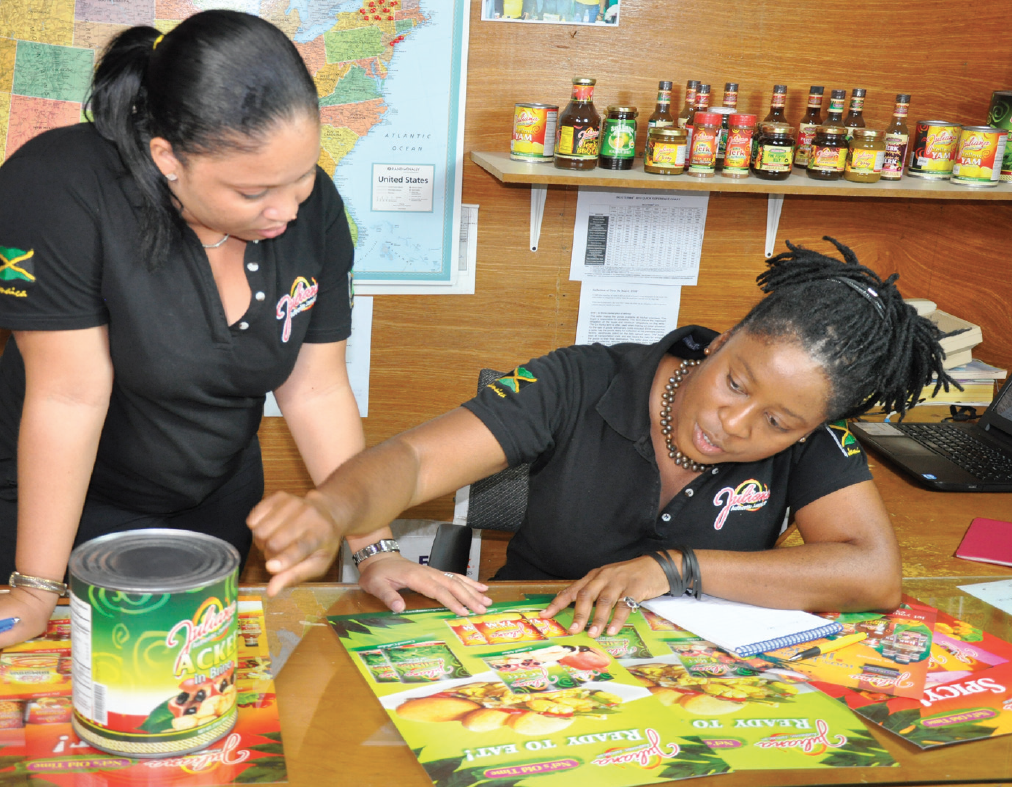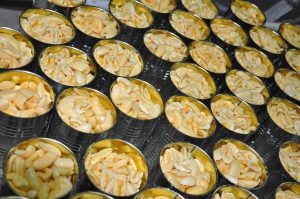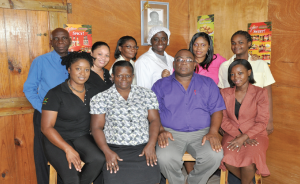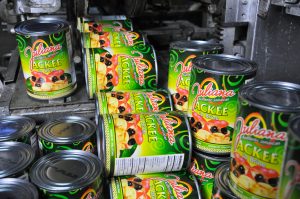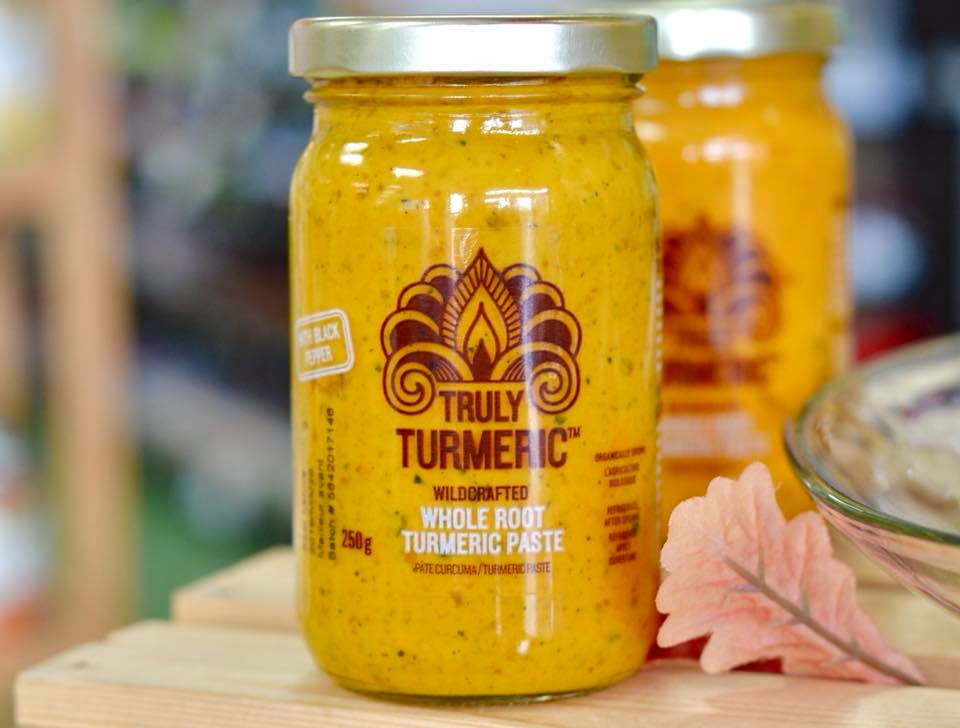Toen Umeeda Switlo in 2014 Belize bezocht in opdracht van een internationale NGO, werd ze meteen verliefd op het Midden-Amerikaanse land, de mensen en een gouden, prikkelende wortelkruid.
Het was de mooiste kurkuma die ik ooit in mijn leven had gezien, herinnerde ze zich. Het was enorm groot en oranjeachtig van kleur.
En toen ze de hand schudde van een van de oude Indiase kurkumatelers, voelde ze zich geïnspireerd, vastbesloten om hem en andere telers te helpen de band met hun cultuur te herstellen.
Kurkuma, het hoofdbestanddeel van kerrie, werd meer dan 200 jaar geleden in Belize geïntroduceerd toen contractarbeiders uit India in het land aankwamen.
Vereerd om zijn geneeskrachtige eigenschappen, is kurkuma ook diep geworteld in de cultuur van Umeeda. Umeeda, geboren in Oeganda als kind van een renaissancevrouw, herinnert zich dat haar moeder, Lella (alias Mamajee), in auto’s racete, haar eigen Montessori runde en een gemene curry kookte. Zij ontvluchtten het door oorlog verscheurde land in de jaren zeventig en kwamen in Canada aan met niets meer dan een koffer en herinneringen.
Mamajee heeft in de keuken een band opgebouwd met haar dochter Umeeda, en uiteindelijk met haar kleindochter Nareena, door verhalen van thuis te delen en hen traditionele recepten te leren. Ze gebruikte deze epicuristische sessies ook om een sterk gevoel van sociale verantwoordelijkheid bij te brengen, waardoor Umeeda en Nareena vaak stilstonden als ze vroeg wat ze zouden doen om de wereld beter te maken.
Ze vonden het antwoord tijdens Udeema’s bezoek in 2014 aan Belize, waar een perfect huwelijk van geschiedenis, traditie en moeder-natuur een bekroonde sociale onderneming opleverde die boeren zou ondersteunen om extra inkomen te verdienen, jongeren in dienst te nemen, de gezondheid te verbeteren en producten duurzaam te produceren.
Hun onderneming, Naledo Belize, combineert Nareena’s naam met Toledo, het district in Belize waar de kurkuma vandaan komt. Het bedrijf koopt kurkuma rechtstreeks van lokale boeren en gebruikt het om Truly Turmeric te maken, ’s werelds eerste in het wild gemaakte kurkumapasta met hele wortels.
Het is maar kurkuma, zult u zeggen. Maar vergis je niet, de missie van Naledo, hun eindproduct en het sociale element dat wordt gebruikt om het te produceren zijn transformerend. Het bedrijf is genomineerd voor een SIAL Paris 2018 Product Innovation award, een erkenning voor degenen die helpen vorm te geven aan wat we vandaag en morgen eten.
De prijzen worden gehouden in Parijs tijdens ’s werelds grootste beurs voor voedselinnovatie, van 21 tot 25 oktober 2018.
Zaken op gang brengen
Wat is er nodig om een innovatieve, sociaal bewuste, duurzame, bekroonde start-up te creëren?
Er waren een paar dingen die ik moest overwinnen, het eerste was de angst voor mezelf, vertelde Umeeda. Ik was ook een nieuw product aan het maken. Niemand in de wereld had dit ooit eerder gedaan, dus er was geen voorbeeld voor mij om te volgen. En ik deed het in een vreemd land.
Umeeda herinnerde ook aan vroegere ondernemersprojecten. Eigen baas zijn is een uitdaging, zei ze. En ze wist niet zeker of ze het nog een keer wilde doen. Maar ze werd aangemoedigd door de jonge, aspirant-ondernemers in Belize en door de belangstelling en passie van haar dochter voor sociaal ondernemerschap.
Het idee van een moeder/dochter team heeft me echt overtuigd, zei Umeeda. Zij heeft vaardigheden die ik niet heb, en ik heb vaardigheden die zij niet heeft. Dus, het voelde als een goed team.
Umeeda heeft een zeer diverse ondernemersachtergrond die varieert van het bezitten en exploiteren van een groot kinderdagverblijf tot het managen van muzikanten en het bouwen van een Rock n Roll-gelegenheid.
Moeder en dochter hebben ook beiden ervaring in internationale ontwikkeling. Nareena beschikt over een schat aan kennis in de non-profitsector, waar ze werkte als directeur fondsenwerving; maar Naledo is haar eerste onderneming, en ze geeft toe dat het starten van een bedrijf een enorme leercurve is geweest.
Ik herinner me dat ik naar vergaderingen ging met distributeurs, en alle acroniemen opschreef. Ze hadden zoiets van wat is je SRP? En ik zou naar de badkamer gaan met mijn telefoon om te googelen wat SRP is, zei ze. Ik probeerde voortdurend een evenwicht te vinden tussen eerlijk willen zijn en zeggen, ik weet niet zeker wat dat betekent, versus te naïef klinken en mijn onderhandelingsvermogen verliezen.
Ook op persoonlijk vlak waren er uitdagingen in overvloed. Nareena vertelt dat haar relatie de ontberingen van het ondernemerschap niet overleefde.
Ik had een partner, een vriend waarmee ik samenwoonde, en hij vond het niet leuk wat ik deed. Hij dacht dat ik dom was om dit te doen, zei ze. Ik weet nog dat ik mijn eerste visitekaartjes liet drukken; hij zei dat je jezelf geen COO mag noemen. Je bent de COO van niets op dit moment. We zijn niet meer samen.
Maar ondanks de vele obstakels die ze tegenkwamen, hielden Nareena en Umeeda hun ogen op de prijs gericht. Ze bleven gericht op hun missie en toegewijd aan het vervullen van Mamajee’s wens om doelgericht te leven en positief bij te dragen aan het leven van anderen.
Naledo is in 2015 begonnen met productontwikkeling. Om meer bekendheid te krijgen, besloten ze af te zien van de boerenmarkt en in plaats daarvan te lanceren op een vakbeurs in mei 2016 in Vancouver, Canada, waar zowel inkopers als distributeurs en makelaars aanwezig zouden zijn. Hun opstelling was eenvoudig, slechts 50 gelabelde potten en een paar monsters. Maar de respons was overweldigend. Naledo viel op bij een nationale distributeur die geloofde in hun sociale ondernemingsmodel en hen hielp groeien van nul winkels in 2016 naar 600 winkels in heel Canada, van kust tot kust. Het bedrijf exporteert nu ook naar de Bahama’s, heeft al een overeenkomst gesloten voor de VS en bereidt zich voor op export naar Europa.
Het valt niet te ontkennen dat ze een uitstekend product maken, maar het succes van Naledo is ook grotendeels te danken aan de manier waarop ze zaken doen. Jongerenondernemerschap, regeneratieve landbouw en duurzaamheid staan aan de basis van het bedrijf.
De menselijke kant van ons succes is waar ik het meest trots op ben, de impact die de productie van dit product heeft gehad op de telers met wie we samenwerken, mensen die kunnen sparen voor de opleiding van hun kinderen, huizen kunnen renoveren, op reis kunnen gaan, aldus Nareena. We zien meer mensen, vooral jongeren, die trots zeggen dat ik kurkuma kweek, in plaats van landbouw te zien als iets dat arme mensen doen.
Met uitmuntendheid komt erkenning
Naledo Belize kan hun nominatie voor een SIAL Paris award toevoegen aan een groeiende lijst van wereldwijde erkenning, waaronder een innovatieprijs van de regering van Belize, een van Canada’s top 10 voedselbedrijven om in 2018 in de gaten te houden, en een plek in seizoen 13 van het populaire tv-programma Dragon’s Den.
Op SIAL zullen tienduizenden belanghebbenden uit de voedings- en drankenindustrie de kans krijgen om Naledo’s Simply Turmeric pasta te proeven, die te zien zal zijn op de stand van de Caribbean Export Development Agency (Caribbean Export). Het regionale agentschap voor handels- en investeringsbevordering ondersteunt Cariforum-bedrijven bij hun exportontwikkeling en zal op de tentoonstelling 12 regionale bedrijven presenteren. Caribbean Cure, een theebedrijf uit Trinidad dat deel zal uitmaken van de Caribbean Export tentoonstelling, is ook een genomineerde voor SIAL.
Dat twee regionale start-ups op de SIAL shortlist zijn gekomen is een geweldige prestatie, en volgens Umeeda is dat de verdienste van Caribbean Export.
Een organisatie hebben die gelooft dat het Caribisch gebied de wereld iets te bieden heeft, dat is heel belangrijk. Wat zij bieden op het gebied van toegang tot kennis en financiering heeft me gewoon versteld doen staan, aldus Umeeda. Ik kan niet genoeg benadrukken hoe ondersteunend dat is.
Naledo Belize hoopt in 2019 in Europa op de markt te komen. Umeeda en Nareena benadrukten beiden dat dit mogelijk is dankzij Caribbean Export.
Advies voor toekomstige ondernemers
Naledo’s reis van Belize, naar Canada, het Caribisch gebied, Amerika en binnenkort Europa, is zwaar bevochten en gevuld met slapeloze nachten. Maar dat is nu eenmaal waar ondernemerschap om draait, deelde Umeeda mee. Zij en Nareena dachten na over de talloze nachten die zij om drie uur ’s nachts wakker lagen, piekerend, probleemoplossend en de volgende stappen overdenkend, de talloze keren dat de stem van de twijfel hen ertoe aanzette het voor gezien te houden. Maar telkens als die twijfels opdoken, vonden de twee hun wil om door te gaan in een getal van 350, het aantal telers in Belize waarmee zij samenwerken.
Ik denk aan hen niet teleurstellen, aan het geweldige jeugdteam waarmee we in onze verwerkingsfabriek werken, aan mijn grootmoeder trots maken, en aan alle andere mensen in mijn leven die me moed hebben gegeven en me hebben laten zien dat je door tegenslagen heen veerkrachtig moet zijn, aldus Nareena. Dus misschien slaap ik wat extra uit op die ochtenden dat ik pas na 3 uur in bed lag, en ik blijf gewoon doorgaan.
Nareena smeekte ook collega-ondernemers, en degenen die op weg zijn naar het ondernemerschap, zich te omringen met gelijkgestemden. Marketing en sociale media zijn gericht op perfectie, maar onder dit alles zit enorm veel werk, toewijding en zelfopoffering. Het is van vitaal belang deze strijd te delen met lotgenoten die het begrijpen.
Het geeft je een goed gevoel, zei ze. Je beseft dat ik het niet alleen ben. Ik ben oké.
En wees doof voor de nee-zeggers die ze adviseerde.
Als hun kritiek over uw product of uw dienst gaat, luister dan eens, want in die negativiteit zit misschien een kans op verbetering. Maar als ze negatief zijn over je passie, wie je bent en waar je in gelooft, zeg dan dat ze moeten ophoepelen!
FIND OUT MORE ABOUT NALEDO BELIZE: Facebook – Naledo Belize; Instagram – @ truly.turmeric; en door een bezoek aan hun website www.naledo.com.






